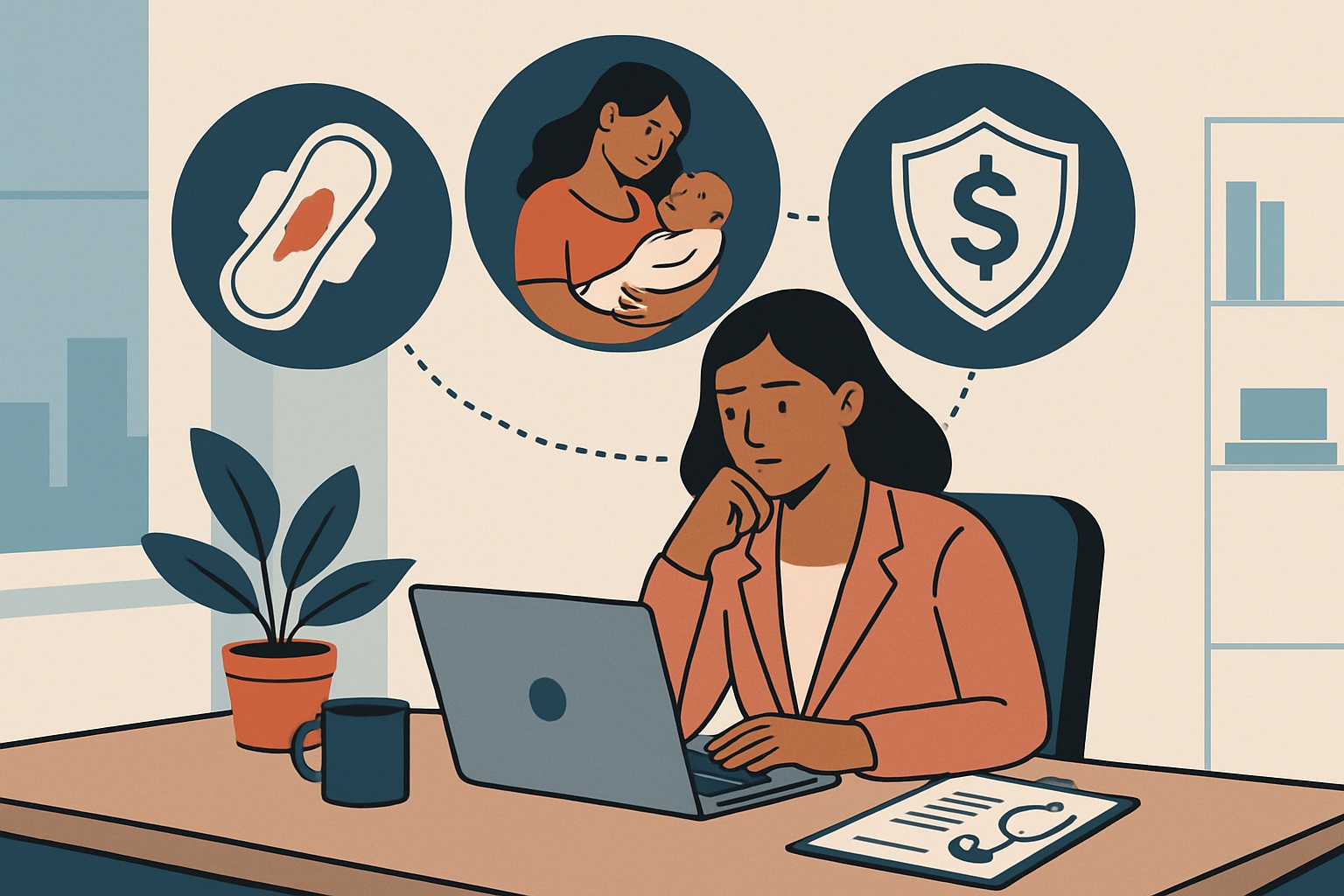
As more women contribute to the workforce across sectors, there’s a growing need to view women’s health not just as a personal issue, but as a professional and societal priority.
Yes, employment brings empowerment — but it also adds layers of responsibility. When women juggle career growth, household duties, caregiving roles, and personal health, they need more than just a salary — they need systems of support at home, at work, and in policy.
Understanding the Hidden Load
Women often face unique challenges in the workplace that aren’t openly discussed:
- Periods and menstrual health: Working through pain, discomfort, or stigma.
- Maternity and post-partum stress: The pressure to “bounce back” or prove loyalty.
- Household and parenting stress: Still largely handled by women in most families.
- Mental health strain: Balancing multiple roles can lead to burnout or anxiety.
- Lack of time for check-ups or preventive care — health gets pushed to the bottom of the priority list.
The Role of Employers and Colleagues
Creating a health-positive and inclusive work culture helps not only women but the entire organisation.
What Employers Can Do:
- Offer comprehensive health and term life insurance with women-focused wellness benefits.
- Conduct health awareness drives — around PCOS, breast cancer, menstruation, menopause, mental health, etc.
- Introduce paid menstrual leave or flexible sick day options.
- Support maternity and paternity policies that reduce bias and burden.
- Build an open culture where employees feel safe to discuss health without judgement.
What Colleagues Can Do:
- Show empathy and non-intrusive support during vulnerable times.
- Avoid gendered assumptions about commitment or availability.
- Be part of mental wellness initiatives — not just for women, but for all.
How Insurance Awareness Can Make a Difference
When women are aware of the health and term insurance options available to them, they are more likely to:
- Prioritise preventive care.
- Seek treatment on time.
- Plan better for maternity and child-care-related expenses.
- Secure their families financially in case of unforeseen situations.
Organisations that actively promote insurance literacy build a more confident, resilient, and healthy workforce.
A Culture of Openness Benefits Everyone
- Health talks and awareness forums reduce stigma.
- Peer discussions help normalise experiences that were once hidden.
- Equal attention to both men’s and women’s health builds a fairer, stronger culture.
While this series focuses on women, it’s important to state — this isn’t about bias. It’s about balance. Men need equal support and attention too, and their journey matters.
But let’s accept that women’s bodies, roles, and challenges are unique — and they deserve tailored attention, respect, and protection.
What’s Next
This series has highlighted the deep, interwoven relationship between women’s health, insurance, and family-societal systems.
But stay tuned — because soon, a men-centric series on good health and term life insurance will also be shared. After all, building a truly healthy society requires that every voice is heard, every need is acknowledged, and no one is left behind.
(The writer is the founder of ‘Investment Options’, an insurance and investment consultancy based in Goa since 2013, with pan-India clientele)